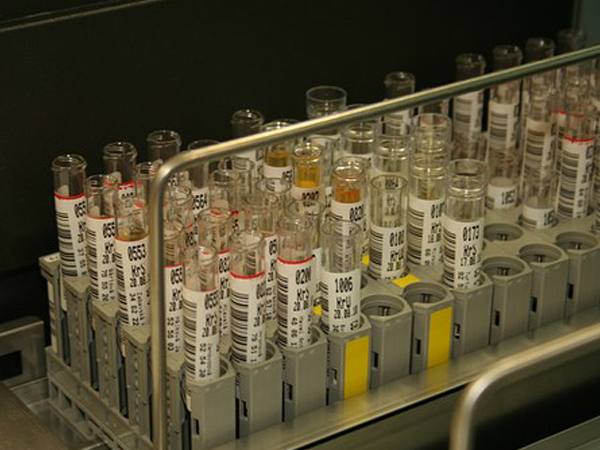Just In
- 53 min ago

- 3 hrs ago

- 5 hrs ago

- 7 hrs ago

Don't Miss
- News
 Rahul Gandhi Lacks The Bravery To Run In Amethi Polls, Claims Rajnath Singh
Rahul Gandhi Lacks The Bravery To Run In Amethi Polls, Claims Rajnath Singh - Finance
 Green Deposit Showdown: SBI Vs Bank Of Baroda Interest Rates
Green Deposit Showdown: SBI Vs Bank Of Baroda Interest Rates - Movies
 Varshangalkku Shesham Box Office Collection: Vineeth Sreenivasan's Film Shines; Makes Over Rs 50 Crore
Varshangalkku Shesham Box Office Collection: Vineeth Sreenivasan's Film Shines; Makes Over Rs 50 Crore - Education
 IIT Madras Introduces International master's course on Water Security and Global Change
IIT Madras Introduces International master's course on Water Security and Global Change - Technology
 Realme C65 Reportedly Launching Soon in India - Check Expected Price & Specs
Realme C65 Reportedly Launching Soon in India - Check Expected Price & Specs - Sports
 Why is Dhanashree Verma not attending IPL 2024 matches of husband Yuzvendra Chahal?
Why is Dhanashree Verma not attending IPL 2024 matches of husband Yuzvendra Chahal? - Automobiles
 Kerala Spearheads Revival of Iconic Double-Decker Trains in India
Kerala Spearheads Revival of Iconic Double-Decker Trains in India - Travel
 From Coconut Breaking on Head to Men Dressing as Women: 12 Unique Indian Rituals Explored
From Coconut Breaking on Head to Men Dressing as Women: 12 Unique Indian Rituals Explored
Goodpasture Syndrome (GPS): Causes, Symptoms, Diagnosis And Treatment
Goodpasture Syndrome (GPS) is an autoimmune disorder. In this disorder, the underlying membranes of the kidneys and lungs are affected. This disease is said to occur when the body's defence system produces antibodies against collagen (a kind of protein that is involved in the formation of connectivity tissues), in turn, attacking the lungs and kidneys [1] .
Another name for GPS is Anti-Glomerular Basement Membrane Antibody Disease (anti-GBM) [2] . The initial symptoms of this ailment are mild and extremely misleading, for instance, fatigue. This is because such symptoms can be common with other disorders too. GPS can be fatal if not treated on time.
Read on to know more about the causes, symptoms, diagnosis and treatment of GPS.

What Is Goodpasture Syndrome (GPS)?
It is a pulmonary-renal syndrome [3] . This is linked to a group of acute illnesses that involve the kidney and lungs. GPS is likely to involve the following conditions.
- Glomerulonephritis or inflammation of the glomeruli (tiny clusters of blood vessels in the kidney that help in filtering wastes and extra water from the blood) [4]
- Presence of anti-glomerular basement membrane antibodies [5]
- Bleeding in the lungs.
In this condition, the immune cells tend to produce antibodies against a specific region of collagen [6] . The antibodies are such that they attack the collagen in the kidneys and lungs.
This syndrome was first brought to light by Ernest Goodpasture who reported a patient dying from bleeding in the lungs and kidney failure during the influenza pandemic in the year 1919.
Causes Of Goodpasture Syndrome (GPS)
Although detailed research is still pending as to what could be the real cause behind GPS, it is largely believed that it is caused due to a combination of genetic and environmental factors. This autoimmune condition can be caused due to any of the following [7] :
- Cigarette smoke.

- Inhaled hydrocarbons
- Viral infections
- Use of hair dyes
- Exposure to metallic dust
- Use of certain drugs such as cocaine.
Symptoms Of Goodpasture Syndrome (GPS)
The symptoms begin to show slowly over a period of time. The following are the major first symptoms [8] :
- Difficulty in breathing
- Pale skin
- Nausea and vomiting
- Fatigue.
The lungs are usually affected before the effect begins to show on the kidneys. The symptoms start off initially as difficulty in breathing but can slowly move over to shortness of breath followed by severe coughing, sometimes with blood [9] .
The following symptoms are observed when the kidneys are affected [10] :
- Blood in the urine
- Foamy urine
- High blood pressure
- Swelling in the legs
- Burning sensation while urinating
- Back pain below the ribs.
Dialysis or a kidney transplant might be necessary if Goodpasture syndrome has resulted in kidney failure.

Diagnosis Of Goodpasture Syndrome (GPS)
You should see your doctor if any of the characteristic symptoms of Goodpasture syndrome occur. Your doctor might conduct the following diagnostic tests:
- Urinalysis: If there are high levels of protein and a high number of red blood cells [11] in the urine, there could be kidney damage.

-
Chest
X-ray:
The
results
obtained
can
show
if
there's
lung
damage.
For
instance,
abnormal
white
patches
could
indicate
lung
bleeding.
Blood test: A blood sample is obtained to analyze the presence of antibodies that attack the lungs and kidneys. - Biopsy: A small kidney or lung tissue is obtained to check for the presence of Goodpasture syndrome antibodies.
Treatment Of Goodpasture Syndrome (GPS)
Prompt and aggressive treatment is required to [12]
- fight harmful antibodies,
- control fluid buildup,
- prevent serious kidney and lung disease, and
- control high blood pressure.

The treatment procedure usually involves the use of oral immunosuppressive drugs such as corticosteroids and cyclophosphamide [13] . These drugs work by decreasing the immune system's production of Goodpasture syndrome antibodies. The treatment with these drugs can continue for a period of six to twelve months.
Another procedure known as 'plasmapheresis' can also be used as a treatment option. This helps in the removal of harmful antibodies from the blood [14] . The procedure involves drawing out blood from the body and placing it in a centrifuge. The centrifuge separates the red and white blood cells from the plasma (the component that contains the Goodpasture Syndrome antibodies). The red and white blood cells are mixed into a plasma substitute and then returned to the patient's body. This procedure would need to be continued daily for several weeks. It can last for as long as two years.
On A Final Note...
Being a disorder that can turn fatal if not treated, it is advised that one seek medical intervention even if there is a slight concern with regard to the symptoms that might be showing up, even if it is in the mild form. Experts say that diet and nutritional factors have not been associated with causing or preventing Goodpasture syndrome [15] .
- [1] Rahman, J., Loh, J., & Staines, N. A. (1992). Low-affinity antibodies against collagen type II produced by lymph node cells are associated with pathology in collagen-induced arthritis in rats.Clinical and experimental immunology,88(3), 461–466.
- [2] Hirayama, K., Yamagata, K., Kobayashi, M., & Koyama, A. (2008). Anti-glomerular basement membrane antibody disease in Japan: part of the nationwide rapidly progressive glomerulonephritis survey in Japan.Clinical and experimental nephrology,12(5), 339-347.
- [3] Papiris, S. A., Manali, E. D., Kalomenidis, I., Kapotsis, G. E., Karakatsani, A., & Roussos, C. (2007). Bench-to-bedside review: pulmonary-renal syndromes--an update for the intensivist.Critical care (London, England),11(3), 213.
- [4] Zhou, C., Lou, K., Tatum, K., Funk, J., Wu, J., Bartkowiak, T., … Lou, Y. (2015). Differentiating Glomerular Inflammation from Fibrosis in a Bone Marrow Chimera for Rat Anti-Glomerular Basement Membrane Glomerulonephritis.American journal of nephrology,42(1), 42–53.
- [5] Turner, N., & Pusey, C. D. (1991). Anti-glomerular basement membrane disease. InImmunology of Renal Disease(pp. 229-254). Springer, Dordrecht.
- [6] Ooi, J. D., Holdsworth, S. R., & Kitching, A. R. (2008). Advances in the pathogenesis of Goodpasture's disease: from epitopes to autoantibodies to effector T cells.Journal of autoimmunity,31(3), 295-300.
- [7] Shiferaw, B., Miro, V., Smith, C., Akella, J., Chua, W., & Kim, Z. (2015). Goodpasture's Disease: An Uncommon Disease With an Atypical Clinical Course.Journal of clinical medicine research,8(1), 52–55.
- [8] Stojkovikj, J., Zejnel, S., Gerasimovska, B., Gerasimovska, V., Stojkovic, D., Trajkovski, M., … Jovanovski, S. (2016). Goodpasture Syndrome Diagnosed One Year And A Half after the Appearance of the First Symptoms (Case Report).Open access Macedonian journal of medical sciences,4(4), 683–687.
- [9] Fernandes, R., Freitas, S., Cunha, P., Alves, G., & Cotter, J. (2016). Goodpasture's syndrome with absence of circulating anti-glomerular basement membrane antibodies: a case report.Journal of medical case reports,10, 205. doi:10.1186/s13256-016-0984-6
- [10] Sinha, V. K., & Hibbert, C. (2015). Near-lethal acute kidney injury due to Goodpasture's syndrome: A case report. Journal of the Intensive Care Society, 16(4), 350–354.
- [11] Master Sankar Raj, V., Warnecke, D., Roberts, J., & Elhadi, S. (2017). Antiglomerular Basement Membrane Disease in a Pediatric Patient: A Case Report and Review of the Literature. Case reports in nephrology, 2017, 1256142.
- [12] Narayanan, M., Casimiro, I., & Pichler, R. (2014). A unique way to treat Goodpasture's disease. BMJ case reports, 2014, bcr2014206220.
- [13] Huart, A., Josse, A. G., Chauveau, D., Korach, J. M., Heshmati, F., Bauvin, E., ... & Faguer, S. (2016). Outcomes of patients with Goodpasture syndrome: a nationwide cohort-based study from the French Society of Hemapheresis. Journal of autoimmunity, 73, 24-29.
- [14] Munk, Z. M., & Skamene, E. (1979). Goodpasture's syndrome--effects of plasmapheresis. Clinical and experimental immunology, 36(2), 244–249.
- [15] Sakoda, C., Kusaba, T., Adachi, T., Sonomura, K., Kimura, T., Nakayama, M., ... & Matsubara, H. (2011). A case of Goodpasture syndrome positive for anti-GBM antibody and MPO-ANCA complicated by a variety of serious infections.Clinical nephrology,75(4), 384-388.
-
 pregnancy parentingWhite Lung Syndrome: What Are The Symptoms Of The Disease Rampant In China? How Does It Spread?
pregnancy parentingWhite Lung Syndrome: What Are The Symptoms Of The Disease Rampant In China? How Does It Spread? -
 healthWhat Is Traffic Stress Syndrome? Are You At Risk?
healthWhat Is Traffic Stress Syndrome? Are You At Risk? -
 disorders cureWhat Is Jerusalem Syndrome? A Psychosis State That Makes People Hear ‘Voices Of Angels’
disorders cureWhat Is Jerusalem Syndrome? A Psychosis State That Makes People Hear ‘Voices Of Angels’ -
 disorders cureWhat Is Alice in Wonderland Syndrome (AWS)? Causes, Symptoms And Treatment
disorders cureWhat Is Alice in Wonderland Syndrome (AWS)? Causes, Symptoms And Treatment -
 disorders cureWhat Is Refeeding Syndrome? Its Symptoms, Risk Factors And Treatment
disorders cureWhat Is Refeeding Syndrome? Its Symptoms, Risk Factors And Treatment -
 disorders cureRestless Leg Syndrome: Symptoms, Causes, Diagnosis And Treatment
disorders cureRestless Leg Syndrome: Symptoms, Causes, Diagnosis And Treatment -
 disorders cureCompartment Syndrome: Causes, Symptoms, Diagnosis And Treatment
disorders cureCompartment Syndrome: Causes, Symptoms, Diagnosis And Treatment -
 disorders cureSneddon Syndrome: Causes, Symptoms, Diagnosis & Treatment
disorders cureSneddon Syndrome: Causes, Symptoms, Diagnosis & Treatment -
 babyGrey Baby Syndrome: Causes, Symptoms, Diagnosis and Treatment
babyGrey Baby Syndrome: Causes, Symptoms, Diagnosis and Treatment -
 prenatalTwin-to-twin Transfusion Syndrome - Everything you need to know
prenatalTwin-to-twin Transfusion Syndrome - Everything you need to know -
 healthThese Plants Are Helpful To Control Indoor Air Pollution And Boost Lung Health
healthThese Plants Are Helpful To Control Indoor Air Pollution And Boost Lung Health -
 wellnessLung Cancer Awareness Month: Early Signs Of Lung Cancer In Men
wellnessLung Cancer Awareness Month: Early Signs Of Lung Cancer In Men


 Click it and Unblock the Notifications
Click it and Unblock the Notifications



